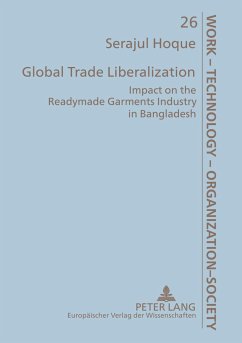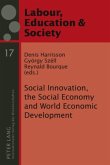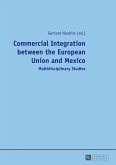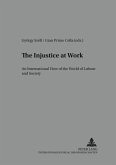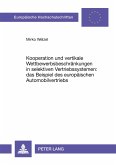Global trade liberalization with regard to the readymade garments industry is a topic of highest relevance for the Bangladeshi economy and linked very strongly to its changing social structure. Garment industry actually is a very new, export-oriented sector of the Bangladesh economy. It was only some twenty years ago that this sector was fully established in Bangladesh. Today it has grown to the number eighteen exporter world-wide, employing some 1.8 million people directly, of whom most of them are women, and another 10 million indirectly. The main markets are the EU and NAFTA. The development of Bangladesh garments industry was facilitated by the different Multi Fibre Arrangements. Therefore - as many other new competitors have grown over the last couple of years, namely South and East Asian including China, the ASEAN, Mexico and 24 Caribbean countries - Bangladesh's garment industry will face a difficult period after 2004.
Bitte wählen Sie Ihr Anliegen aus.
Rechnungen
Retourenschein anfordern
Bestellstatus
Storno

